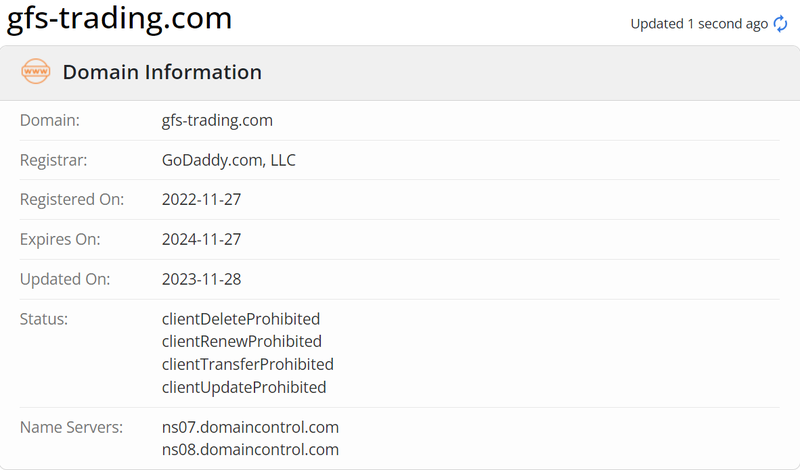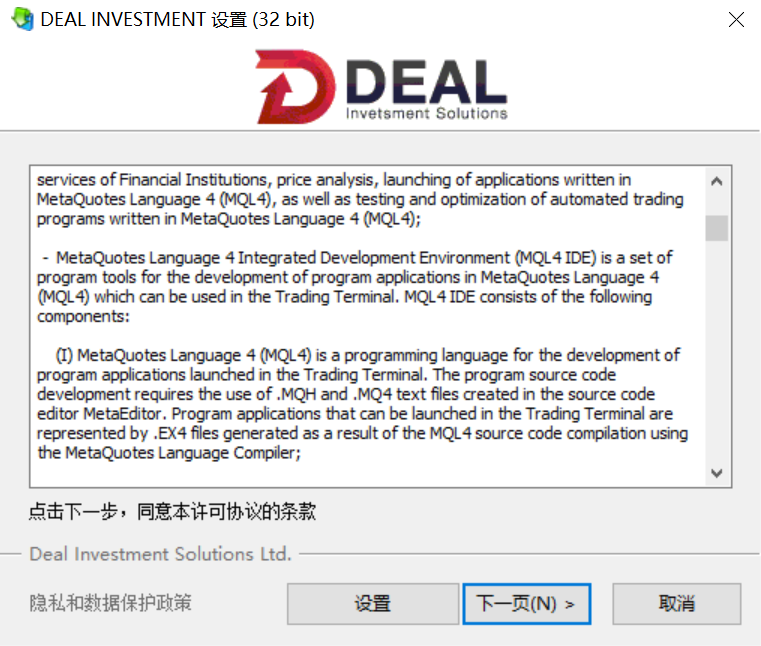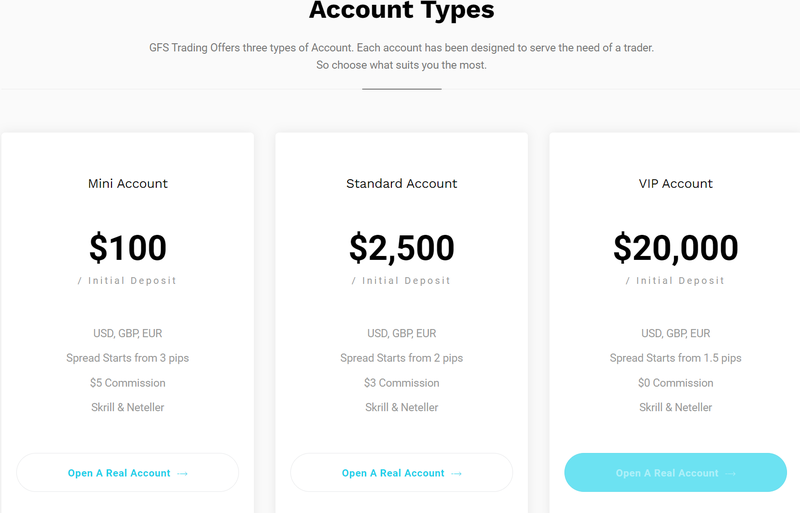This article analyzes GFS Trading’s background, spread structure, minimum deposit requirements, and lack of regulatory transparency, urging investors to carefully assess the risks.
Company Background
GFS Trading is a forex broker whose website was registered on November 17, 2022, specializing in foreign exchange trading services. Despite offering services to global investors, the company has not disclosed specific details about its headquarters or contact information. This lack of transparency raises questions about the company’s operational legitimacy, especially in the forex trading industry where transparency is often a key factor in determining a broker’s reliability.
Brokers typically gain trust by providing clear information about their company history, management, and registered locations. However, GFS Trading lacks this essential information and primarily attracts clients through its trading platform and account offerings. In global financial markets, especially the forex market, transparency and easy access to information are crucial for traders. The absence of such details might exacerbate potential customers’ concerns about trusting this platform.
Domain Information
GFS Trading’s domain (gfstrading.com) was registered on November 17, 2022, making it a relatively new player in the market. The forex industry is highly competitive, and established brokers with more experience tend to gain higher levels of trust. Newly established brokers need to gain market share through solid regulatory status, excellent customer service, and transparency. In GFS Trading’s case, its recent domain registration and lack of detailed company information might make investors uneasy about its credibility.

Registration and Regulatory Information
GFS Trading’s website does not provide any information about its registered entity or any regulatory licenses. This is a major red flag in the forex market. Typically, regulated brokers prominently display their licensing information to assure clients of their fund safety and operational compliance. Based on the MT4 platform download link provided on the GFS Trading website, it appears that the download link is associated with Deal Investment Solutions Ltd. However, upon further investigation, the only available information refers to a company with the same name registered in Belize, which does not confirm its connection to GFS Trading.


Belize is a popular registration location for many forex brokers because of its relatively lax financial regulations. While companies registered in Belize may operate legally, such locations often come with lower regulatory standards and higher operational risks.
Unreasonable Spread Structure
GFS Trading offers three types of real trading accounts: Mini Account, Standard Account, and VIP Account. The spread structure between these accounts raises some concerns. According to the website, Mini and Standard accounts have spreads starting from 3 pips, while VIP accounts offer spreads starting from 1.5 pips. In the forex market, spreads are closely tied to transaction costs; the smaller the spread, the lower the trading costs for investors. However, GFS Trading’s spread offerings are significantly above market averages, which might be considered unreasonable for traders.

In the forex industry, popular currency pairs with high liquidity (such as EUR/USD) typically have spreads in the range of 1 to 2 pips. GFS Trading’s 3-pip spread for Mini and Standard accounts is noticeably high, which will significantly increase trading costs, especially for day traders or high-frequency traders. Moreover, while the VIP account offers a lower spread, its minimum deposit requirement of $20,000 excludes many ordinary investors.
Normal Spread Ranges in Financial Markets
In legitimate forex trading markets, spreads usually fluctuate based on account type, trading volume, and market liquidity. For highly liquid currency pairs, the spreads are typically lower. For instance, regulated brokers usually offer spreads between 1 and 2 pips for standard accounts, while VIP or professional accounts may even have 0 pips, with commissions covering broker costs.
In comparison, GFS Trading’s spread setup is quite high. For entry-level traders, such spreads could substantially increase trading costs. Therefore, investors should ensure that the spreads offered by a broker align with market liquidity and competitive rates.
Concerns About Minimum Deposits
GFS Trading’s three account types have minimum deposit requirements of $100 (Mini Account), $2,500 (Standard Account), and $20,000 (VIP Account). For novice or average traders, these deposit thresholds may present challenges, especially the higher deposits required for Standard and VIP accounts.
In comparison, many reputable brokers offer lower minimum deposit requirements, particularly to attract novice traders. The $100 deposit for the Mini account is relatively common, but its associated high spreads and trading costs may deter cost-sensitive investors. As for the Standard and VIP accounts, especially the VIP account with a $20,000 minimum deposit, it clearly excludes most small- to medium-sized traders.
Minimum deposit requirements are an important consideration when selecting a broker. A high initial deposit does not necessarily guarantee better service or trading conditions; instead, it might indicate that the broker’s pricing structure is not favorable for the average user.
From the perspectives of transparency, regulatory status, spread reasonableness, and minimum deposit requirements, GFS Trading presents several issues. The platform lacks publicly available information on its company background and regulatory status, raising concerns about the safety of investors’ funds. Furthermore, the spreads and minimum deposit requirements are relatively high, making GFS Trading potentially less appealing for average traders.
When choosing a forex broker, investors should prioritize platforms that are transparent and regulated by recognized authorities to ensure fund safety and compliance. Before committing funds, investors are advised to thoroughly research a broker’s background and opt for those offering higher transparency and more reasonable fee structures.
FAQ
- Is GFS Trading regulated by any recognized authority?
GFS Trading has not disclosed any registration or regulatory information, making it unclear whether it is regulated by a recognized authority. - Are GFS Trading’s spreads reasonable?
GFS Trading’s spreads are higher than the market average. Mini and Standard accounts start with a 3-pip spread, while the VIP account starts with a 1.5-pip spread, which results in higher trading costs. - What are the minimum deposit requirements for GFS Trading?
GFS Trading offers accounts with minimum deposits ranging from $100 to $20,000, depending on the account type. The VIP account requires a minimum deposit of $20,000. - Are there alternative brokers?
There are numerous regulated brokers in the market offering lower spreads and more affordable deposit requirements. Investors should explore alternatives based on their trading needs. - Is GFS Trading suitable for beginner traders?
Given its high spreads and relatively high minimum deposit requirements, GFS Trading may not be the best option for beginner traders. - How can I ensure the forex broker I choose is safe?
Investors should prioritize brokers regulated by well-known financial authorities (e.g., FCA, ASIC) and ensure that the platform offers sufficient transparency.



